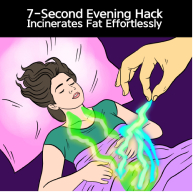Navigating midlife can present a profound period of emotional, social, and physical transitions for women. The so-called midlife crisis in women is a multifaceted experience influenced by unique psychological and societal factors. Contrary to the cliché of dramatic upheavals, women’s midlife transitions often involve deep introspection, reevaluation of life goals, and adjustments driven by biological changes such as menopause. This article aims to provide women over 50 with a compassionate, expert perspective on recognizing the signs of midlife crisis, exploring effective coping strategies, and understanding therapeutic interventions that foster growth and resilience during this critical life phase.
Recognizing the Signs of Midlife Crisis in Women
Understanding the signs of midlife crisis in women is the first step toward navigating this life period effectively. Unlike popular portrayals primarily centered on men, women’s experiences tend to manifest differently—rooted in shifts in identity, family roles, and internal psychological dynamics rather than extravagant behaviors.
Common female midlife crisis symptoms include:
- Emotional Turbulence: Feelings of restlessness, dissatisfaction, anxiety, or depression often emerge as women reassess their life achievements and identity.
- Changing Relationships: The transition related to an empty nest can evoke feelings of loss, sadness, and uncertainty around evolving personal roles beyond motherhood.
- Challenges in Personal Relationships: Marital strain or changes in intimacy may appear, prompting reevaluation of long-term partnerships.
- Sleep Disturbances: Insomnia or altered sleep cycles can arise from stress or hormonal changes during perimenopause and menopause.
- Loss of Interest: Reduced enthusiasm for previously enjoyed activities highlights emotional distress.
- Physical Symptoms: Unexplained weight fluctuations, hot flashes, and other menopausal effects frequently accompany emotional symptoms.
Psychological research underscores that these symptoms reflect a natural but complex reorientation rather than pathology. Recognizing these patterns early allows women to seek supportive resources and avoid unnecessary isolation.
Effective Coping Strategies for Women Experiencing Midlife Crisis
Navigating a midlife crisis with resilience incorporates a blend of self-care, social support, and professional guidance. Here are meaningful approaches to managing this transition:
- Tap Into Your Sisterhood: Peer support is invaluable. Engaging with other women who share similar experiences fosters a sense of belonging and emotional validation. Support groups or informal networks provide a safe space to exchange ideas and encouragement.
- Release the Guilt: Prioritizing self-exploration is essential. Women often feel guilty about focusing on personal growth amid family and societal expectations. Embracing self-compassion alleviates this guilt and empowers meaningful change.
- Reflect Through Journaling: Keeping a gratitude journal or reflective diary helps clarify values and life goals. Documenting what brings joy and fulfillment guides future choices and nurtures emotional insight.
- Prioritize Physical Health: Regular exercise, balanced nutrition, and adequate rest mitigate stress and hormonal fluctuations. Routine medical check-ups help differentiate normal midlife changes from more serious concerns requiring intervention.
- Explore New Interests: Pursuing novel hobbies, educational opportunities, or career shifts can renew passion and purpose.
- Seek Professional Support: For severe or persistent emotional difficulties, therapy—such as cognitive-behavioral therapy (CBT)—offers practical tools to reframe negative thought patterns and build adaptive coping mechanisms.
Social connections play a crucial role in emotional well-being during midlife. Research indicates women with strong friendships report higher life satisfaction and resilience compared to those without such networks. Encouraging open conversations about feelings reduces stigma and fosters collective strength.
Therapeutic Interventions and Harnessing Midlife Transitions for Growth
Professional therapeutic intervention is a powerful resource for women undergoing midlife crisis. Modern psychology reframes midlife not as a period of decline but as a gateway to personal transformation and renewed purpose.
Key benefits of targeted therapy during midlife include:
- Emotional Resilience and Stress Reduction: Structured therapy reduces symptoms of depression and anxiety, helping women manage the unique stressors encountered during this phase. The National Institute of Mental Health highlights the efficacy of talk therapies for supporting mental health in midlife transitions.
- Reframing Life Challenges: Therapy encourages a positive reinterpretation of midlife challenges, transforming feelings of loss or regret into opportunities for growth and empowerment.
- Identification and Awakening of New Potential: Facilitated self-exploration uncovers latent talents and aspirations, allowing women to embrace their second half of life with clarity and intention.
Additionally, nature therapy and regular outdoor activities such as walking and hiking provide notable benefits for mental health, offering calming environments conducive to reflection and stress relief.
Addressing holistic health is equally vital. Monitoring mental health, heart health, sleep quality, and metabolic changes supports overall well-being. Midlife women benefit from regular screenings and proactive management of conditions like hypertension, diabetes, and menopausal symptoms.

For women seeking structure and support, resources such as therapist matching services and free consultations are accessible means to initiate therapeutic journeys.
Conclusion: Embracing Midlife as a Period of Renewal and Empowerment
The midlife crisis in women presents a complex but ultimately transformative stage. By understanding the distinctive signs of midlife crisis in women, embracing compassionate and evidence-based coping strategies, and utilizing professional therapeutic interventions for midlife crisis, women can navigate this period with resilience and renewed purpose.
Midlife is not an end but a beginning—a time to reassess, redefine, and live authentically. Building strong social bonds, prioritizing self-care, and seeking expert support when needed empower women to turn midlife challenges into profound personal growth.
For those feeling overwhelmed, remember that professional help is available and effective. Taking the courageous first step to seek support can usher in a fresh start filled with clarity, strength, and hope.
Frequently Asked Questions (FAQ)
Q1: How long does a midlife crisis typically last in women?
Duration varies widely—often ranging from a few months to several years, depending on individual circumstances and coping approaches.
Q2: Can therapy help with midlife crisis symptoms?
Absolutely. Therapies like cognitive-behavioral therapy are shown to reduce anxiety and depression, providing tools for emotional regulation and positive reframing.
Q3: Are midlife crisis symptoms the same as depression?
While some symptoms overlap, midlife crisis relates to transitional emotional distress whereas depression is a clinical diagnosis often requiring medical treatment.
Q4: What are some effective self-care practices during midlife?
Exercise, nutritious diet, journaling, adequate sleep, social engagement, and pursuing meaningful interests are foundational for well-being.
Q5: How can I support a loved one experiencing a midlife crisis?
Offer empathetic listening, spend quality time together, encourage healthy habits, and support their exploration of new activities while respecting their need for space.
For additional insights on therapeutic benefits and effective coping during midlife, visit the Colorado Women’s Center. For comprehensive health strategies tailored to midlife women, explore expertise shared by the Cleveland Clinic on midlife crises in women. These resources provide trusted support to help women thrive during this life stage.






